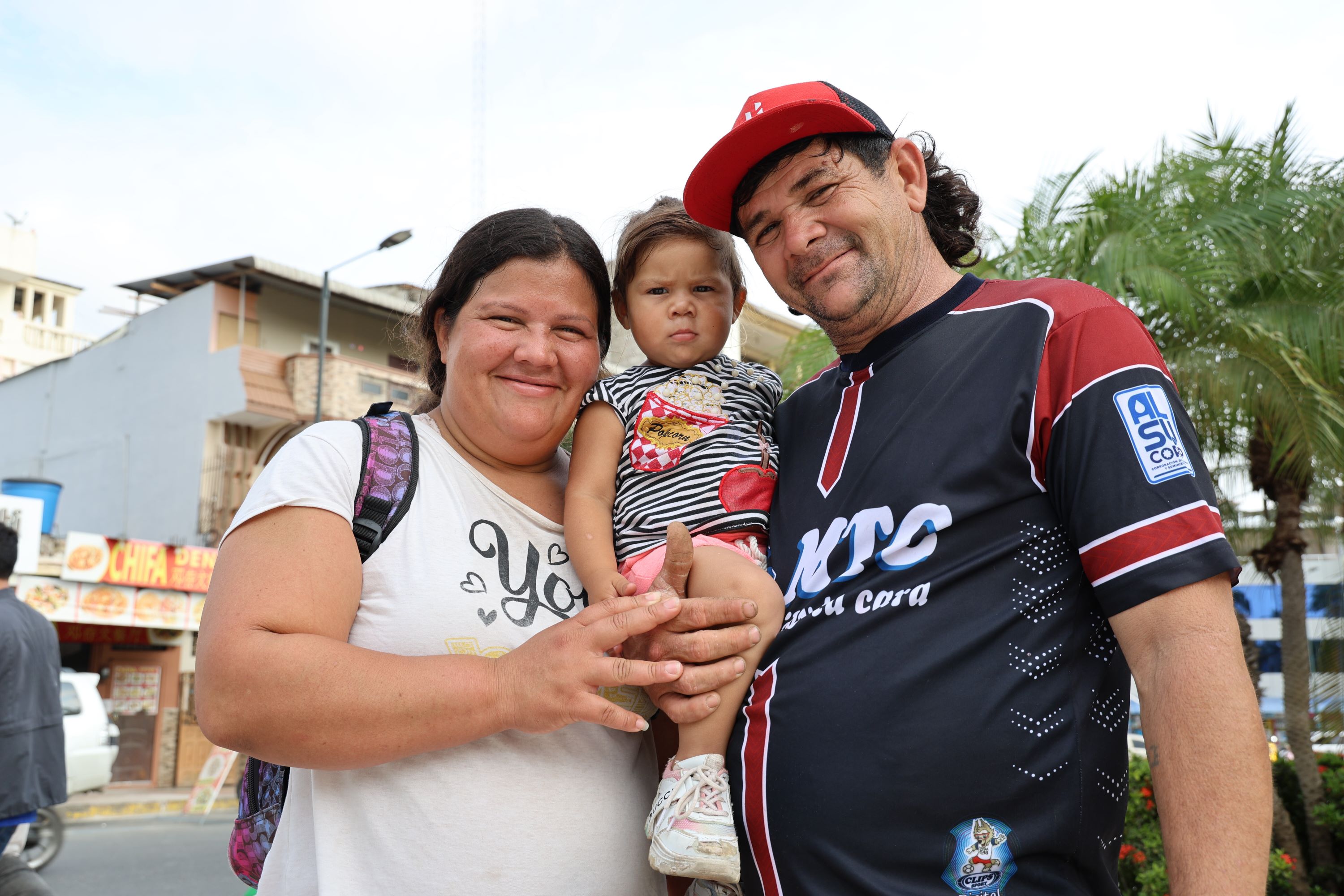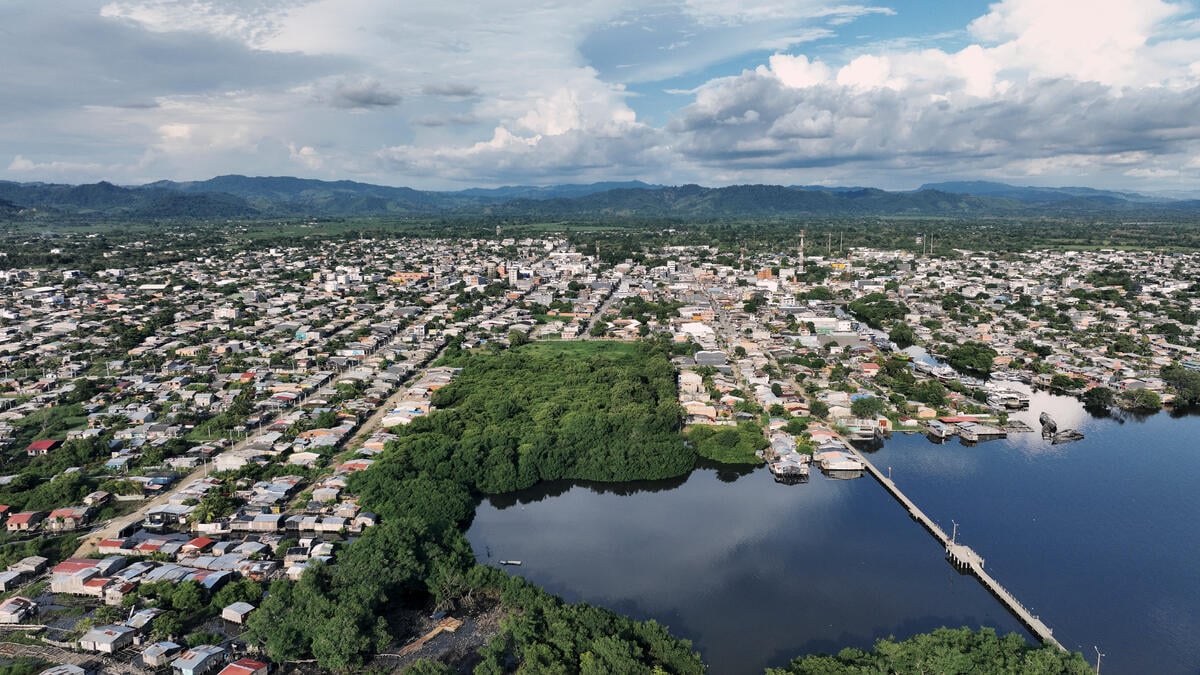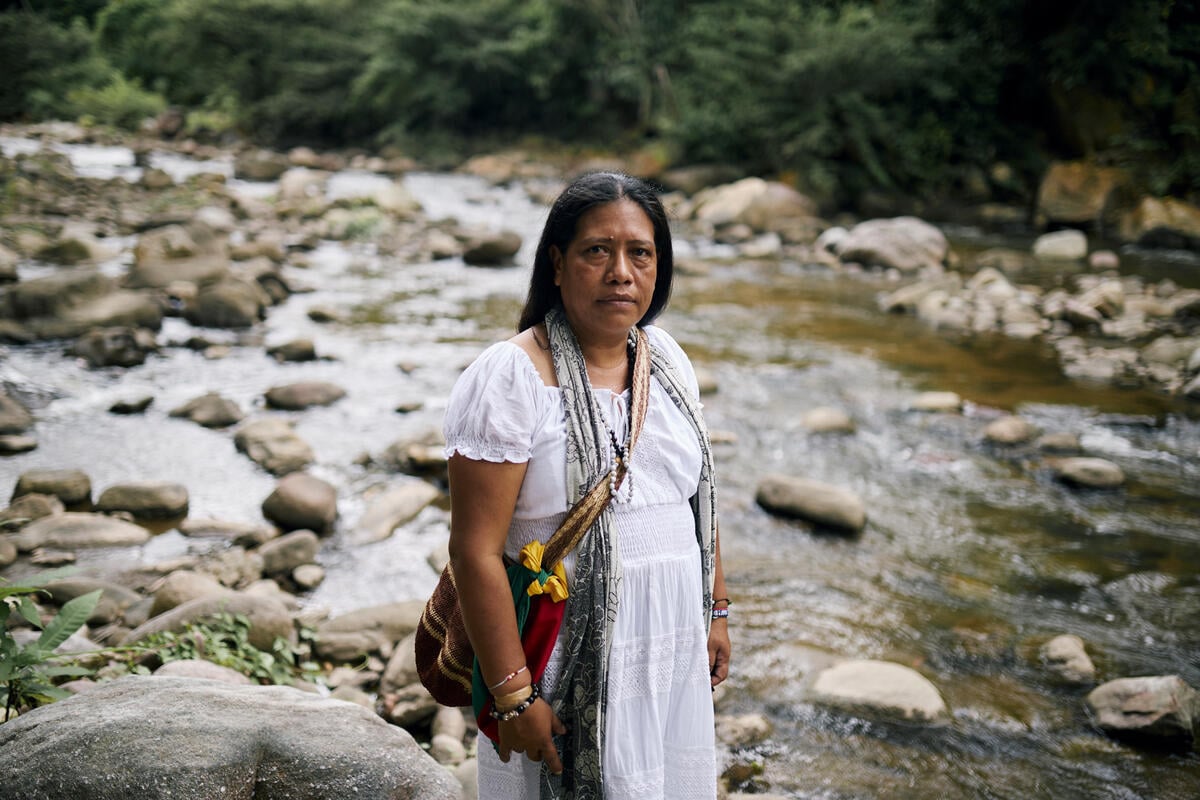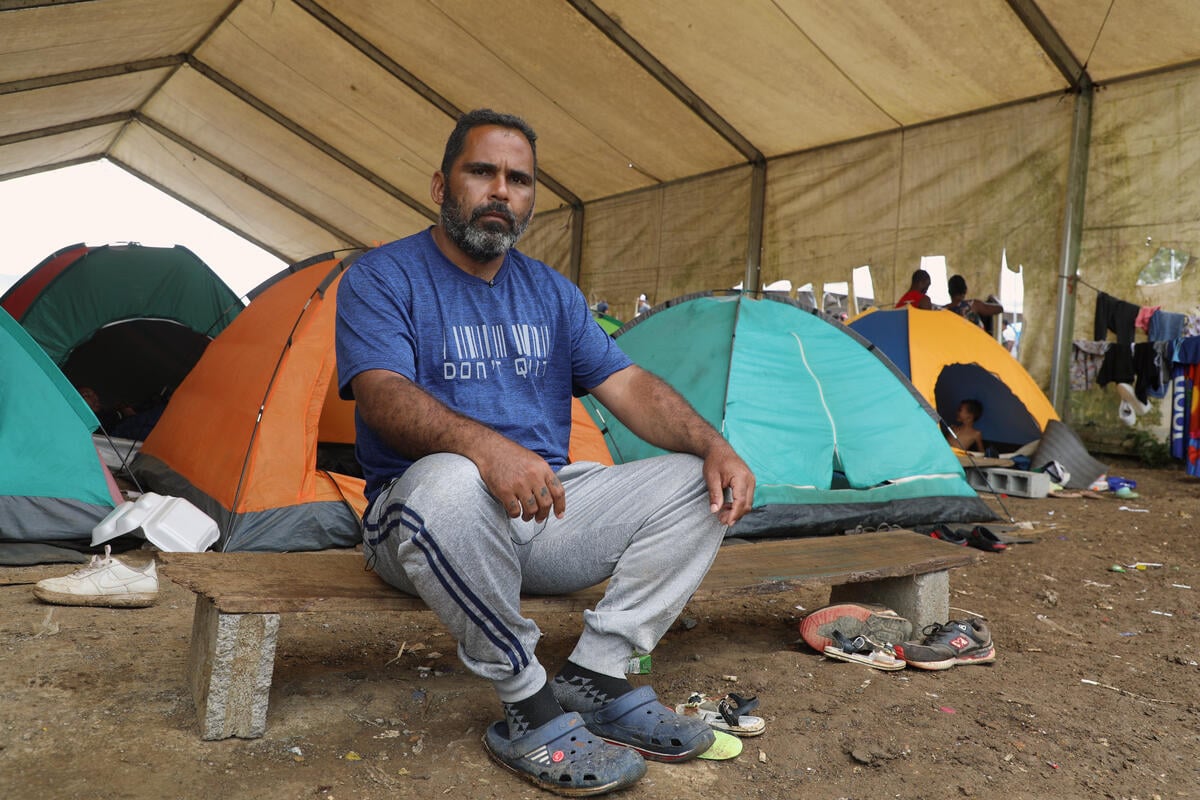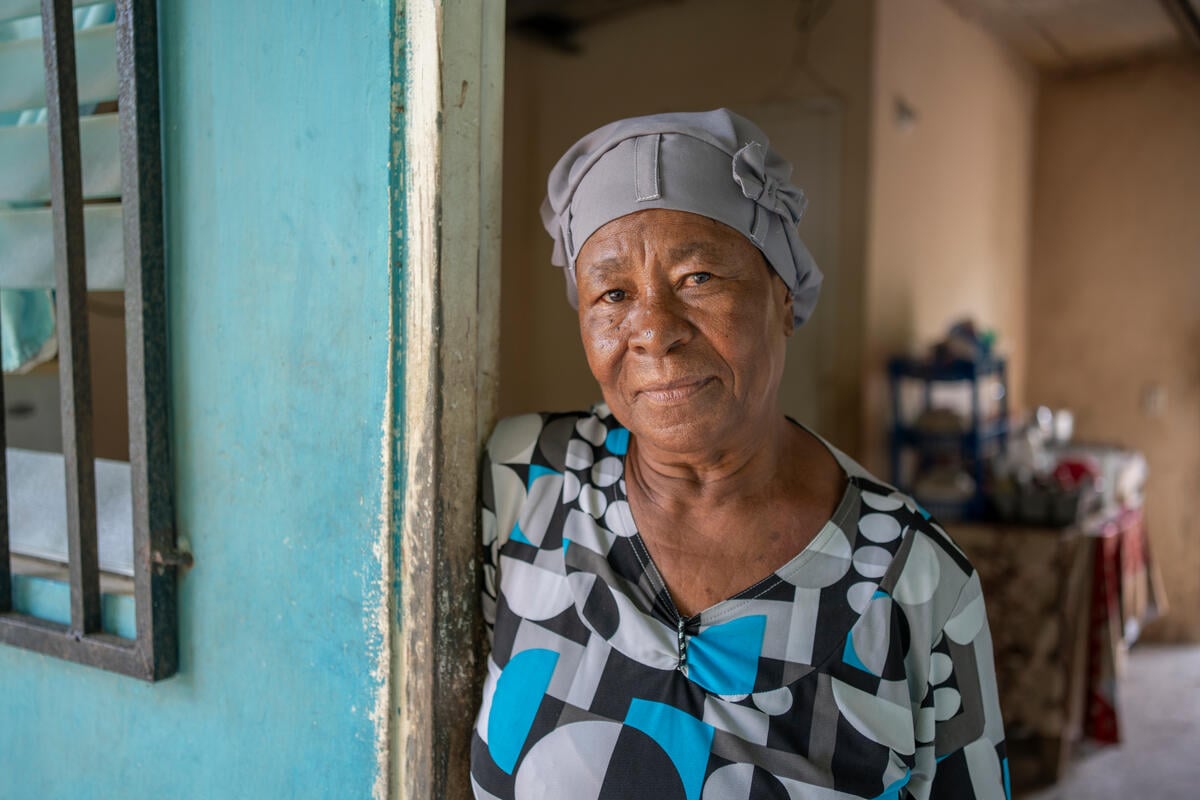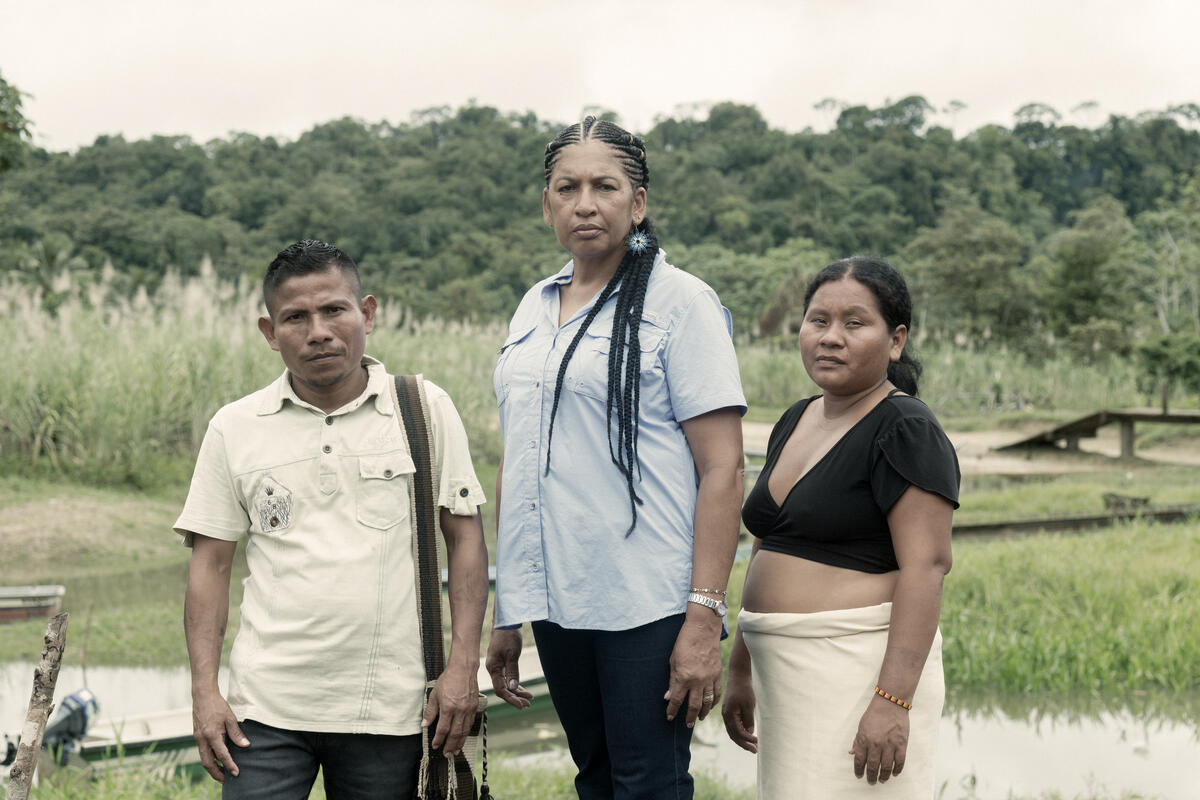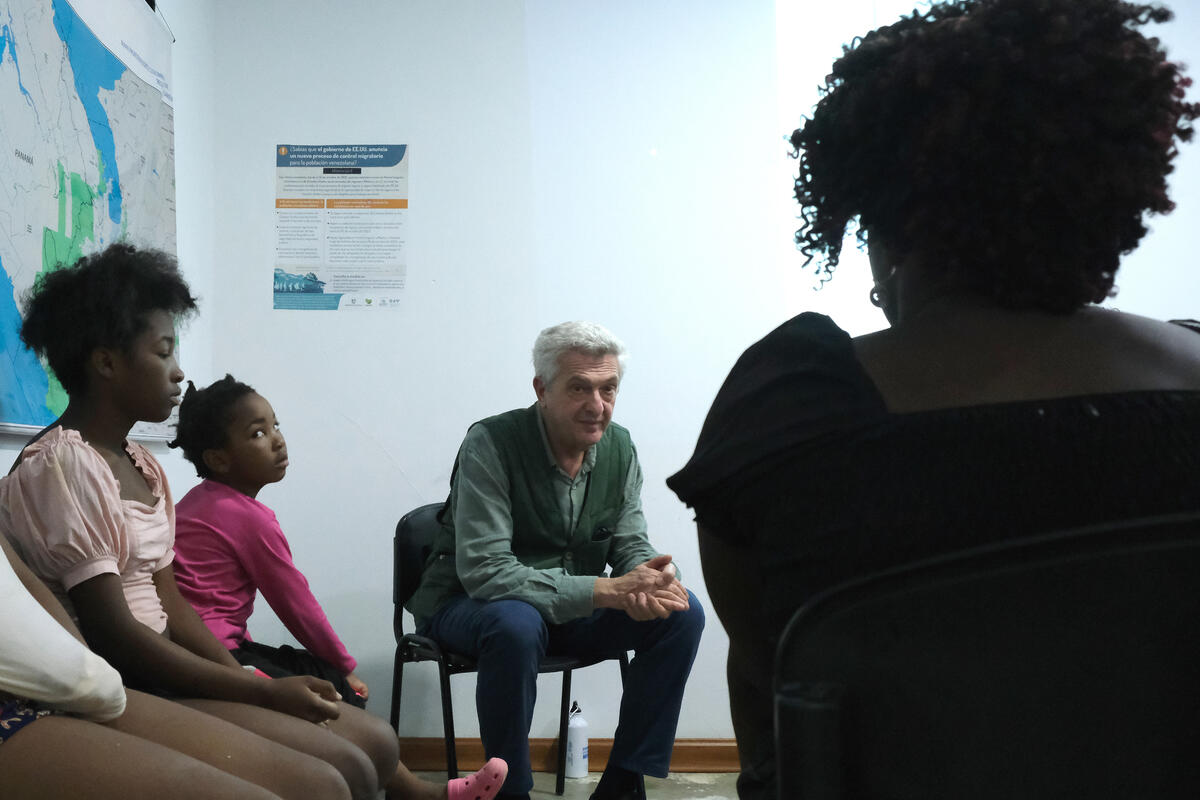Emergency aid delivered to isolated Colombian river villages
Emergency aid delivered to isolated Colombian river villages
UNHCR last week organised an emergency humanitarian mission to bring assistance to several indigenous communities along the Guaviare River in Colombia.
Fourteen tons of food aid provided by the World Food Programme - our sister agency - were delivered by boat to some 1,000 people at four points along the river: Mocuare, Puerto Alvira, Barranco Colorado and the municipal centre of Mapiripan. The area is disputed by rival irregular armed groups, while the national Armed Forces are trying to recuperate control of the territory.
UNHCR had requested the assistance of WFP, who immediately responded, because of an extremely difficult humanitarian situation in the area, with critical food shortages and very high risks of forced displacement in the first three communities. The area is remote and accessible only by river. It is disputed territory; fear and a shortage of gasoline have brought boat transport to a standstill.
Rumours of imminent and worsening conflict have caused widespread panic among the civilian population. Hundreds of people have fled, sometimes walking for days across the forest. The village of Barranco Colorado is largely empty, aside from two indigenous groups of around 40 families each. Puerto Alvira has lost an estimated 75 percent of its estimated 3,000 people. People are also fleeing from Mocuare.
Those who have stayed are now virtually cut off from the rest of the world. Food is not getting through. The very little that is available is extremely expensive. Mission members also noted an acute shortage of medication, with no available means to evacuate the sick in an emergency.
The local church, representatives of the ombudsman's office and staff of the Colombian Ministry for Social Welfare took part in the mission with UNHCR and WFP. In addition to food rations, they distributed basic hygiene kits and school materials donated by the local municipality.
Most of the beneficiaries belonged to the Guyabero and Nukak Maku groups. A few non-indigenous families identified as extremely vulnerable also received assistance. Both the Guyabero and the Nukak Maku Indians are indigenous to the Guaviare region. Many have been forced to flee their lands as a result of the armed conflict, putting at risk their survival as unique ethnic groups.
Under Colombian and international law, special efforts must be made to protect such groups from losing their traditional lands and last week's mission was part of a series of preventive protection measures to this end. UNHCR and WFP, together with local partners, are also starting several projects in the area, such as a school restaurant in Puerto Alvira and welfare programmes for elderly people and the under-five.
There are 80 different indigenous groups in Colombia, who together make up 2 percent of the country's total population. They have been forced to flee their homes in even greater percentages than the rest of their compatriots. At the end of 2007, some 2.4 million Colombians are registered with the government as victims of forced internal displacement.

